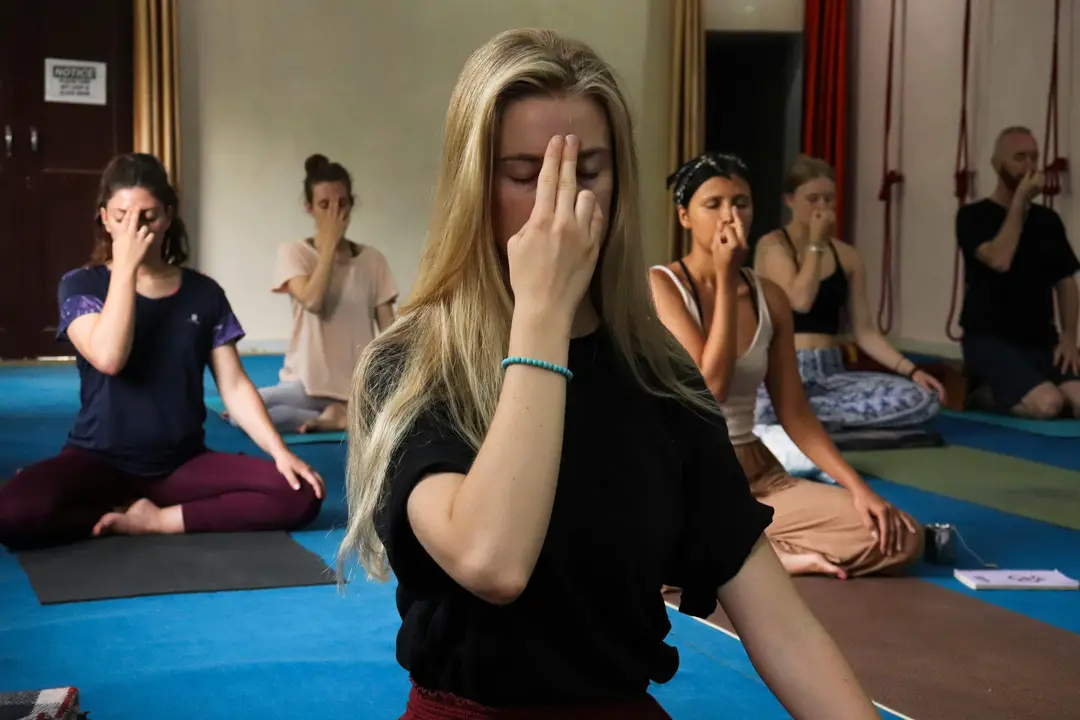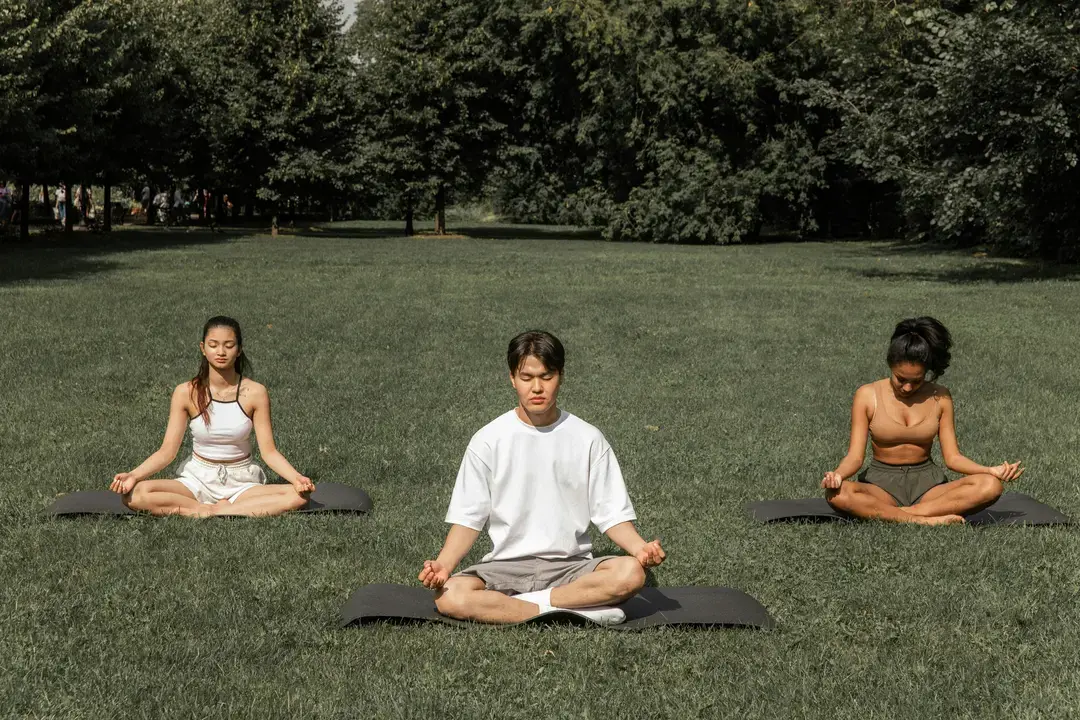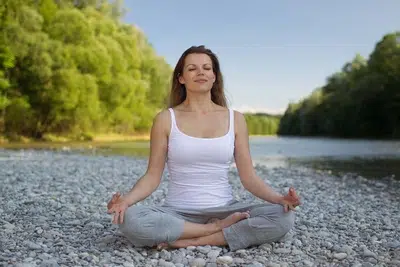12-Day 100-Hour Meditation Teacher Training
Discover Inner Peace: 12-Day 100-Hour Meditation Teacher Training

Thailand

India

Bali
Embark on a transformative journey with our 12-Day 100-Hour Meditation Teacher Training program. Dive deep into the art and science of meditation, equipping yourself with the knowledge and skills to become a certified meditation teacher. This immersive course will empower you to share the profound benefits of meditation with others, fostering peace, clarity, and well-being.
What is Meditation?
Meditation is a practice where an individual uses techniques such as mindfulness, or focusing the mind on a particular object, thought, or activity, to achieve a mentally clear and emotionally calm state. Regular meditation practice can reduce stress, enhance concentration, and promote a deep sense of inner peace.
Why Choose Our Training?
- Experienced Instructors: Learn from seasoned meditation and yoga teachers with years of experience and deep knowledge of meditation practices.
- Holistic Approach: Our training covers all aspects of meditation, ensuring a well-rounded education.
- Supportive Community: Join a community of like-minded individuals passionate about meditation and personal growth.
- Beautiful Location: Train in a tranquil and inspiring environment, perfect for deepening your practice.
Daily Sample Schedule
| Time | Activity |
| 7:00 – 8:15 am | Asana Pranayama Meditation |
| 8:30 – 9:30 am | Breakfast |
| 10:00 – 11:15 am | Meditation Q/A |
| 11:30 – 12:50 pm | Meditation |
| 1:00 – 2:45 pm | Lunch and Rest |
| 3:00 – 3:45 pm | Guided Meditation |
| 4:15 – 5:30 pm | Yoga Session |
| 7:00 – 8:00 Pm | Dinner |
100 Hour Meditation Teacher Training In Thailand Course Curriculum
Our 100 Hour Meditation Teacher Training in Thailand is meticulously designed to provide a solid foundation in meditation practices and techniques. This immersive onsite program in Thailand is perfect for beginners and those seeking to deepen their meditation practice or begin their journey as a meditation teacher. The curriculum focuses on essential aspects of meditation, blending theoretical knowledge with practical experience to ensure you gain the skills and understanding necessary to effectively guide others.
Asana, Pranayama, Bandha, and Mudra
- Asana Practice for Meditation:
- Introduction to yoga postures (asanas) that support meditation by promoting physical comfort and mental stillness.
- Focus on seated postures such as Sukhasana (Easy Pose), Padmasana (Lotus Pose), and Vajrasana (Thunderbolt Pose).
- Techniques to develop strength, flexibility, and proper alignment to sustain prolonged meditation sessions.
- Pranayama Techniques for Meditation:
- Basic breathing exercises to calm the mind and prepare the body for meditation.
- Techniques such as Anulom Vilom (alternate nostril breathing), Bhramari (bee breath), and Ujjayi (victorious breath).
- Understanding how breath control enhances deeper states of meditation.
- Bandha Practices:
- Introduction to the three primary energy locks: Mula Bandha (root lock), Uddiyana Bandha (abdominal lock), and Jalandhara Bandha (throat lock).
- Application of bandhas to control and direct the flow of prana (life force energy) during meditation.
- Mudra Practices:
- Basic hand gestures such as Chin Mudra, Jnana Mudra, and Anjali Mudra that enhance meditation and energy flow.
- Exploration of the energetic and meditative benefits of mudras.
Shat Kriyas and Mantra Chanting
- Shat Kriyas:
- Introduction to yogic cleansing techniques that prepare the body and mind for meditation.
- Techniques such as Jala Neti (nasal cleansing) and Trataka (gazing) to detoxify and cleanse the system.
- Understanding the importance of purification practices in maintaining overall well-being.
- Mantra Chanting:
- Learning and practicing basic mantras like Om and the Gayatri Mantra to harness the vibrational power of sound.
- Techniques to integrate mantra chanting into daily meditation practice for enhanced focus and inner peace.
- Exploring the spiritual and mental benefits of regular mantra chanting.
Yoga Philosophy and Anatomy
- Yoga Philosophy:
- Introduction to key philosophical concepts and classical texts, including the Yoga Sutras of Patanjali and the Bhagavad Gita.
- Understanding the eight limbs of yoga (Ashtanga Yoga) and their relevance to meditation.
- Exploration of Yamas (ethical disciplines) and Niyamas (personal observances) and their application in daily life.
- Anatomy and Physiology:
- Basic understanding of the human body’s anatomy and physiology as it relates to meditation practice.
- Overview of the nervous system, respiratory system, and energy pathways (nadis and chakras).
- Techniques to ensure safe and effective meditation practice, preventing physical discomfort and injury.
Multi-Style Meditations
- Mindfulness Meditation:
- Practicing present-moment awareness through breath and body observation.
- Techniques to develop mental focus, reduce stress, and enhance emotional regulation.
- Integrating mindfulness into daily activities for continuous practice.
- Guided Visualization:
- Using guided imagery to promote relaxation, mental clarity, and personal growth.
- Techniques to create and lead effective guided visualizations for various themes and purposes.
- Loving-Kindness Meditation:
- Cultivating compassion and empathy through the practice of sending positive intentions to oneself and others.
- Techniques to foster emotional balance and interconnectedness with all beings.
- Chakra Meditation:
- Focusing on the body’s energy centers (chakras) to balance and align them, promoting physical, emotional, and spiritual well-being.
- Techniques to visualize, meditate, and chant mantras associated with each chakra.
- Active Meditations (Osho Meditations):
- Combining movement and stillness to release accumulated stress and emotional blockages.
- Techniques such as Osho Dynamic Meditation and Osho Kundalini Meditation for deep relaxation and self-awareness.
